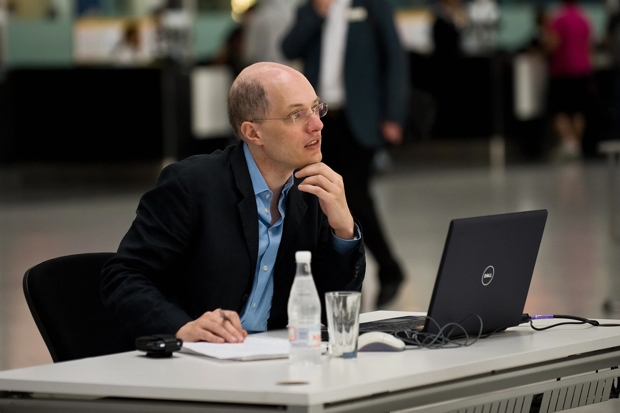Alain de Botton, to judge from his new novel The Course of Love, is trying to be the Freud for our day, the Facebookers’ Freud. For a book that presents itself as an affirmation of married love, it is rather bleak. And the bleakness echoes that of the Viennese know-it-all. Freud, remember, said that our sex drive makes life basically tragic. To have orderly lives, we must renounce our desire for promiscuous fun. To be mentally healthy, we must be honest about this; we must admit the force of our primal instinct, and not deny it or suppress it too rigidly, or we go neurotic. But we must suppress it.
The funny thing about de Botton is that he comes to such conclusions against the grain of his temperament, which is doggedly upbeat. The world is an intricately fascinating place, he keeps saying – there is so much to be curious (his favourite word) about. This whole earnest attitude rings rather hollow when he gets to the big stuff. The most wonderfully enriching experience in life – falling in love – turns out to be a complex source of disappointment. For a soul-mate cannot solve our psychological issues, and other people continue to be attractive. ‘Choosing a person to marry is hence just a matter of deciding exactly what kind of suffering we want to endure, rather than of imagining we have found a way to skirt round the rules of emotional existence.’
Marriage is the least-worst option for flawed needy humans, he seems to say. The couple in his story drift apart from each other when they have children, and after an affair they learn a new realistic muddling along. This is real love, says de Botton. (He unashamedly tells us what life-lessons to draw from his story.)
It’s an entertaining, thought-provoking read. But one comes away scratching one’s head about de Botton’s motivation. He seems to want to help people towards a healthy realism about long-term love. It’s hard work, ‘a skill, not just an enthusiasm.’ But such realism falsifies it just as much as old-fashioned happy-ever-after rhetoric. For in this marriage, beyond the initial sexy thrills, there is no joy, no fun, no grandeur, no glory, no wit, no point. In real life, thank God, marriage does have this (rather mysterious) power, that outweighs the rather banal and grubby fact that we can’t screw everyone we’d like to. The language of secular psychology is too thin and joyless to deal with married love.







Comments